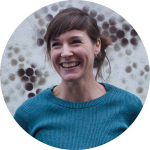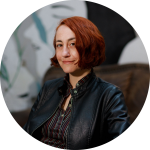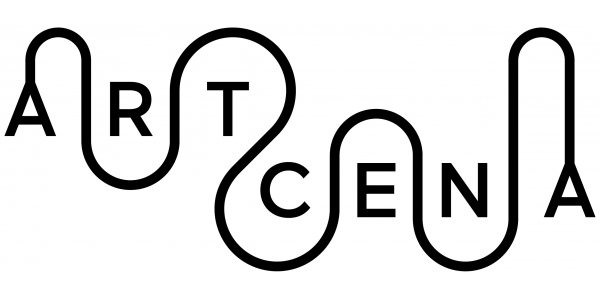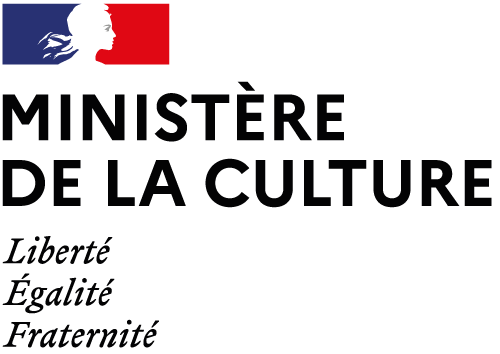From the blank spot to a flourishing landscape: contemporary circus in Germany.
A few years ago, Germany was considered a "blank spot on Europe's circus map". In a very short time, the nation has achieved structural development in the contemporary circus field like no other country. Starting as a kind of grassroots movement in the cities of Cologne and Berlin, and supported by initiatives, venues and creative centres all over the nation, an exciting circus landscape with stages, festivals, residencies, funding programs, and a federal association has emerged over the past six years. In this article, Jenny Patschovsky describes these developments and outlines the status quo and formulates visions for the national scene.
Beginnings and drives of development
The history of contemporary circus in Germany, like all living movements, is not linear or stringent, but interwoven and organic. It is closely linked to the success of individual circus companies and the commitment of some German venues and initiatives. It was the German company GOSH, which became famous in the 1990s particularly in Germany and France, with its idiosyncratic mix of artistry, rock and slapstick which opened up venues such as the Tollhaus in Karlsruhe to a new form of circus. In addition, there were many artists who, for lack of financial support, tried to squeeze a contemporary aesthetic into the commercial realm. Twenty years later, the circus dance company Overhead Project collected eight dance awards between 2011 and 2015 for its successful duet How which brought special attention to the young field of contemporary circus, enabling the company to anchor itself in German funding structures. The success of Overhead Project coincided in time and space with the founding of the Initiative Neuer Zirkus (INZ) in 2011. Both organisations were founded in Cologne and have conditioned, touched, and inspired each other. In this context, Cologne offered itself as a favourable location, as it is close to some popular foreign circus academies in Belgium, the Netherlands and France. The central hub of the German circus scene was and is Berlin as an artistic magnet and melting pot. Around the same time as the INZ was founded, Berlin's Chamäleon Theater transformed itself into an important engine of artistic development and networking by offering residencies and rehearsal spaces, as well as providing a venue for open stages and work-in-progress presentations. Chamäleon Theater was also the driving force behind the formulation of its own Circus Manifesto, which for the first time described the situation and needs of contemporary circus in Germany.
Written together with the INZ, the Berlin Circus Festival and the dedicated artist and circus producer Sebastiano Toma, it has become an important tool for cultural policy lobbying.

Festivals and venues
With a lot of enthusiasm, courage and initiative, the number of venues and festivals that include this new form of circus in their programs has been growing for the past 15 years, and festivals exclusively for contemporary circus pieces are emerging. An important impulse came from the European Capital of Culture RUHR.2010 with the first German circus festival Cirq’ouleur in Herne and the founding of the company URBANATIX in Bochum. In Berlin, the Berlin Circus Festival emerged in 2015, which prepared this new form of circus for the capital with the themes "cool and sexy" and ever since it takes place annually on the Tempelhofer Feld in front of an enthusiastic young audience. Other festivals or cultural institutions such as the Berliner Festspiele, the Ruhrfestspiele Recklinghausen, the Düsseldorf Festival and the Perspectives Festival in Saarbrücken have started including contemporary circus and are thus making a significant contribution to the visibility of the genre. The already mentioned Tollhaus in Karlsruhe, has been hosting its circus festival since 2016, the ATOLL Festival. In addition to presenting noteworthy international guest performances, it also focuses on the local circus scene. Furthermore, the Cologne TANZPAKT Stadt-Land-Bund project CircusDanceFestival by the company Overhead Project has been taking place since 2020. In addition to performances, this festival also offers a residency program, maintains a university collaboration between the Ecole Supérieure des Arts du Cirque in Brussels (ESAC) and the Zentrum für Zeitgenössischen Tanz (ZZT) in Cologne, and contributes to the discourse on circus studies.
Overall, it can be said that many of Germany's festivals and venues recognise their responsibility to build the field and are committed to strengthening the art form in a variety of ways.

The culmination of all these developments can be seen in Zeit für Zirkus, the Germany-wide format of the international circus festival La Nuit du Cirque. This festival has been staged in Germany since 2020 and enormously increased the resonance of the art form in the overall cultural landscape, thanks in part to the commitment of now nearly 30 participating venues across Germany.
BUZZ, the Federal Association of contemporary circus
The founding of the Initiative Neuer Zirkus (INZ) in Cologne laid the groundwork for the cultural-political commitment that spread to other major German cities in just a few years. From 2013, there were also INZ circus networks in Berlin, Munich and Hamburg, later joined by the cities of Darmstadt, Bremen, Freiburg, Leipzig, Stuttgart and the Ruhr region. For the first time, this enabled the exchange of experiences and cooperation both within the cities and nationwide. The actors of the INZ fought locally for the opening of funding institutions for their sector. The solidarity amongst the community was an important driving force from the beginning. The result was a rapidly growing number of events and projects, which, in the absence of public funding, succeeded primarily through self-initiatives, volunteer work and the sharing of resources. Consequently, there was a restructuring into a federal association in 2019. Today, BUZZ acts as an umbrella organisation for contemporary circus institutions in Germany and currently represents nearly 200 members. It functions as a network, information platform, advisory office, and organiser of nationwide professional conferences, meetings and local roundtables. It is also represented in the important institutions of the Independent Performing Arts, where it is active in the fields of funding policy, working conditions and social security, thereby strongly advocating for recognition at the political level.

Funding situation
In Germany, contemporary circus is experiencing a slowly increasing openness on the part of funding institutions. Nevertheless, it still has to fight for the self-evident classification in the performing arts. There is still a lack of municipal or state funding measures that specifically target freelance circus artists, venues, or production centres, thus providing sustainable support for performances, production, research, and higher education. In 2018, and initiated by BUZZ, this disadvantage led to the establishment of a separate, financially independent funding program for contemporary shows, Zirkus ON. Together with 15 mainly German partner institutions, currently supports three selected projects annually with residencies, mentoring, and presentation opportunities. Since 2022, Zirkus ON is independent from BUZZ and has received basic funding from federal sources. Triggered by a temporary restructuring of funding programs during the Corona pandemic, there was, fortunately, some specific funding for contemporary circus productions at the federal level, awarded by the Fonds Darstellende Künste. In 2021, 45 contemporary circus projects were funded, many of which resulted in full-length pieces.
This funding gave the scene a tremendous boost - which is now fatally coming to a halt in June 2023, as new guidelines from the funding agency end the easy accessibility.
This impact also affects BUZZ, which had received funding for its extensive activities for the first time in the past two years.
Meanwhile, the Ruhr region is charting a unique course: since 2021, the North Rhine-Westphalia Ministry has been looking for "young creatives" explicitly from the contemporary circus, as part of the Neue Künste Ruhr funding program. With the help of the funded office Neuer Zirkus Ruhr, the region is to be built up as a platform to showcase contemporary circus. In contrast, there are still federal states where contemporary circus is not recognised as an art form and is thus excluded from funding.
Recently, the Goethe-Institut has included contemporary circus in its funding programs. One of its expressions has been the realisation, in 2023, of a unique residency program that has been realised for the first time, in which the Finnish artist Vilhelmiina Sinervo travels through Germany for almost six weeks, networking with local circus makers.
Circus as Intangible Cultural Heritage, Circus visions
A lot has happened since the first impression of contemporary circus in Germany. As a milestone in the history of circus, the entire community celebrated this spring the inclusion of circus "as an independent form of the performing arts" in the Nationwide Inventory of Intangible Cultural Heritage of Germany. This was achieved through cooperation in the network of circus associations, in which all forms of circus (traditional, contemporary and educational) work together on selected issues. This also included the topics of safety and prevention in circus practice and urgent critical reflection and conscious engagement with the circus' colonial past. Of course, in the ongoing struggle for better structures and working conditions, we must not lose sight of our strengths. Precisely because there is a lack of institutionalised structures, the actors also have greater room for manoeuvre. This means circus creators can decide for themselves what kind of circus they want to embody, how circus should position itself in society, or what kind of circus university education is needed - because Germany urgently needs a circus university.
The circus lives from its adaptability, its sense of solidarity and self-organisation. It offers a new closeness to culture, something which is needed right now in order to open up discursive spaces and provide new perspectives. Perspectives that only circus can give.

Jenny Patschovsky est présidente et cofondatrice de BUZZ, l’Association fédérale du cirque contemporain. Elle a étudié l’histoire de l’art et la musicologie à l’Université de Cologne, fondé la compagnie de cirque Atemzug en 2006 et dirigé Labor Cirque en 2013. Depuis 2016, elle étudie les intersections entre le Bauhaus et le cirque, et conçoit des spectacles in situ pour la Fondation Bauhaus Dessau. Elle est membre de l’équipe du festival CircusDanceFestival de Cologne, et a publié en 2022 le manuel « Circus in Flux » (édité par Verlag Theater der Zeit) en collaboration avec Tim Behren. Jenny participe à divers comités de politique culturelle et est employée de Neuer Zirkus Ruhr.

Valentina Barone is a freelance cultural manager and editor specialising in the contemporary circus and live performance sector. Since 2021, she has been Director of International Relations at the CircusDanceFestival in Cologne (Germany). She holds a BA in Performing Arts Techniques and a Master's degree in Relationship Design. She works with the international network Circostrada (France) and is an active member of the Cirkus Syd' Circus Thinkers Platform (Sweden). Valentina is the coordinator of the international digital platform Around About Circus.






write us: infocircostrada@artcena.fr